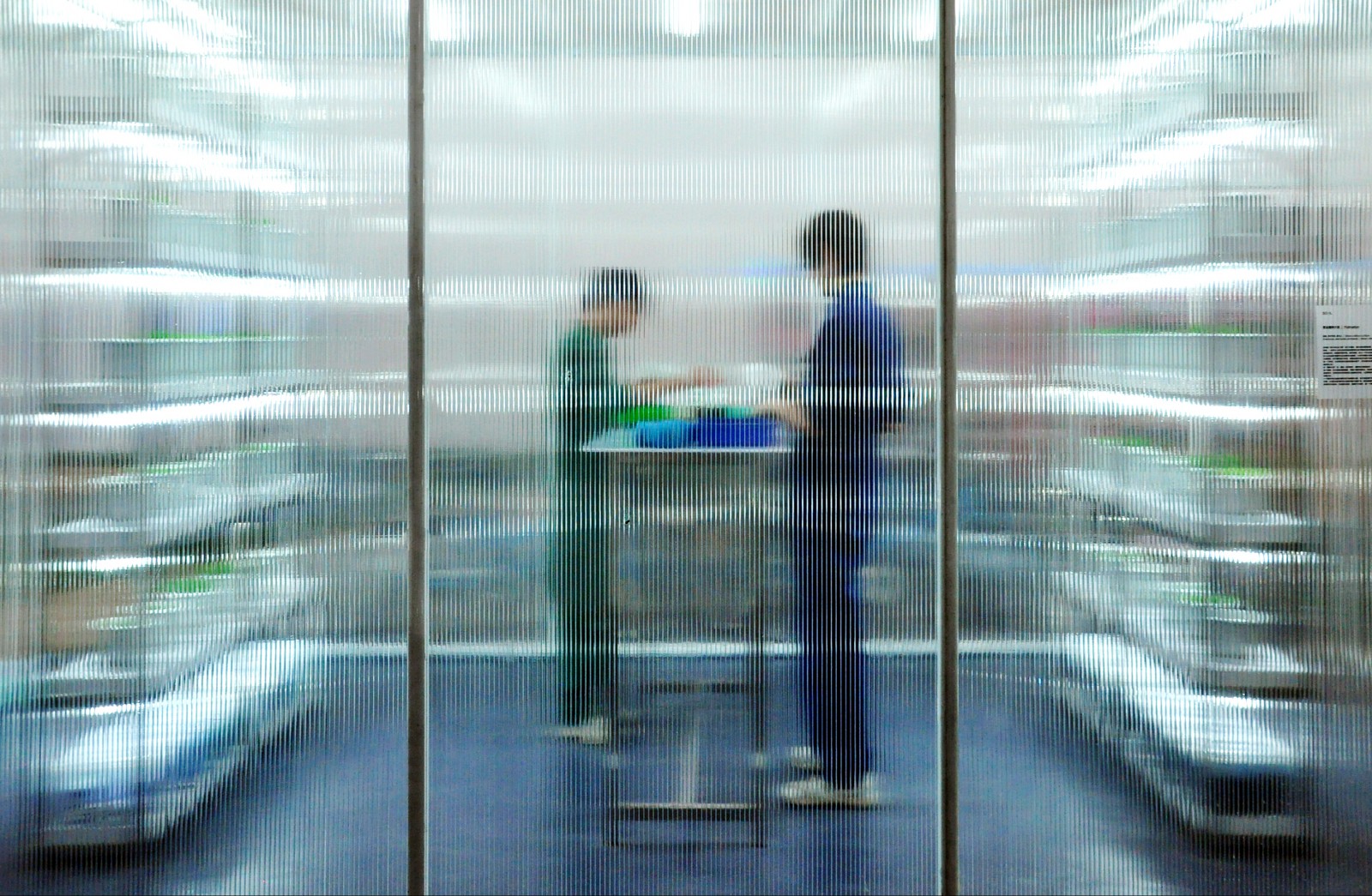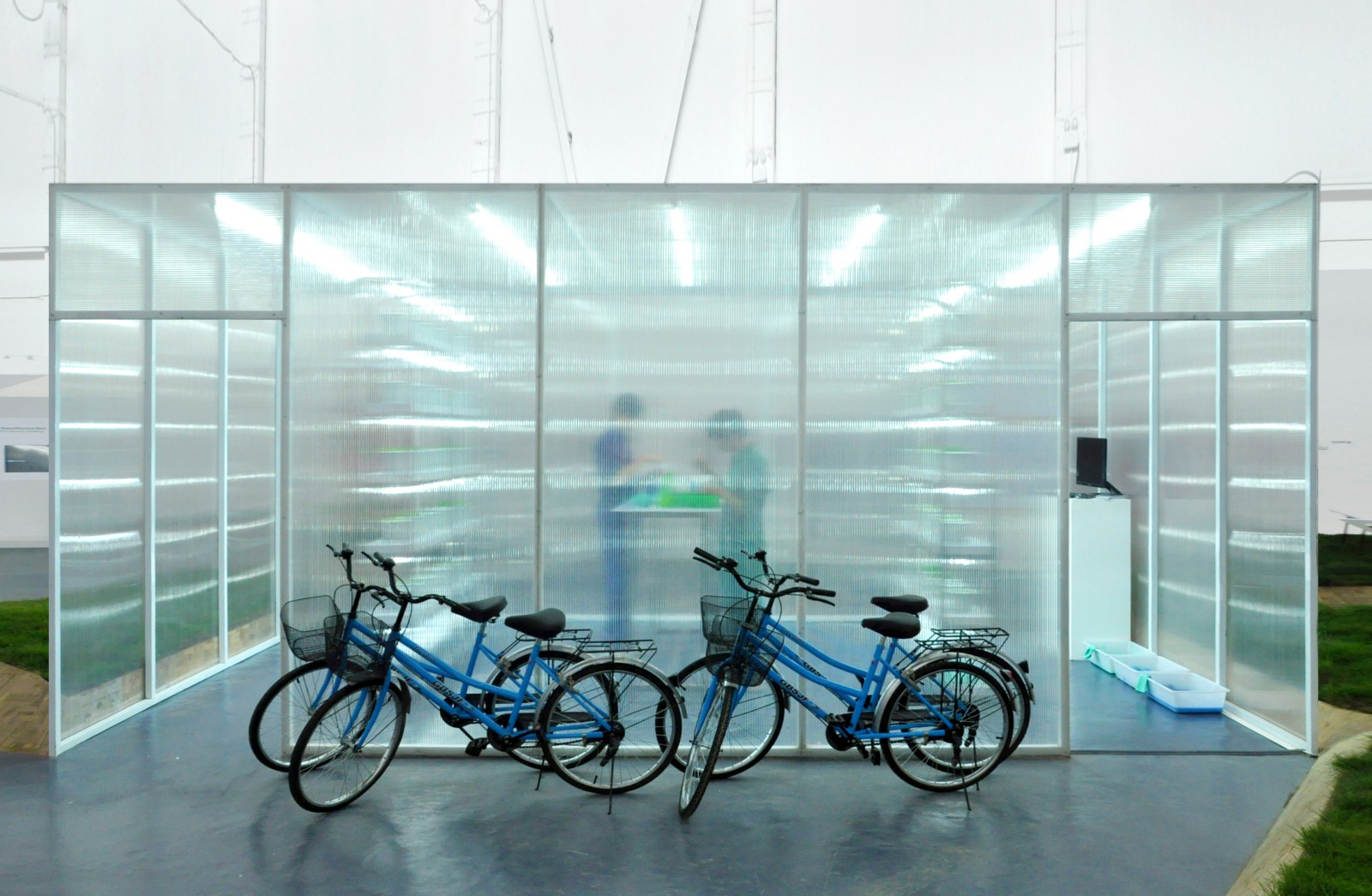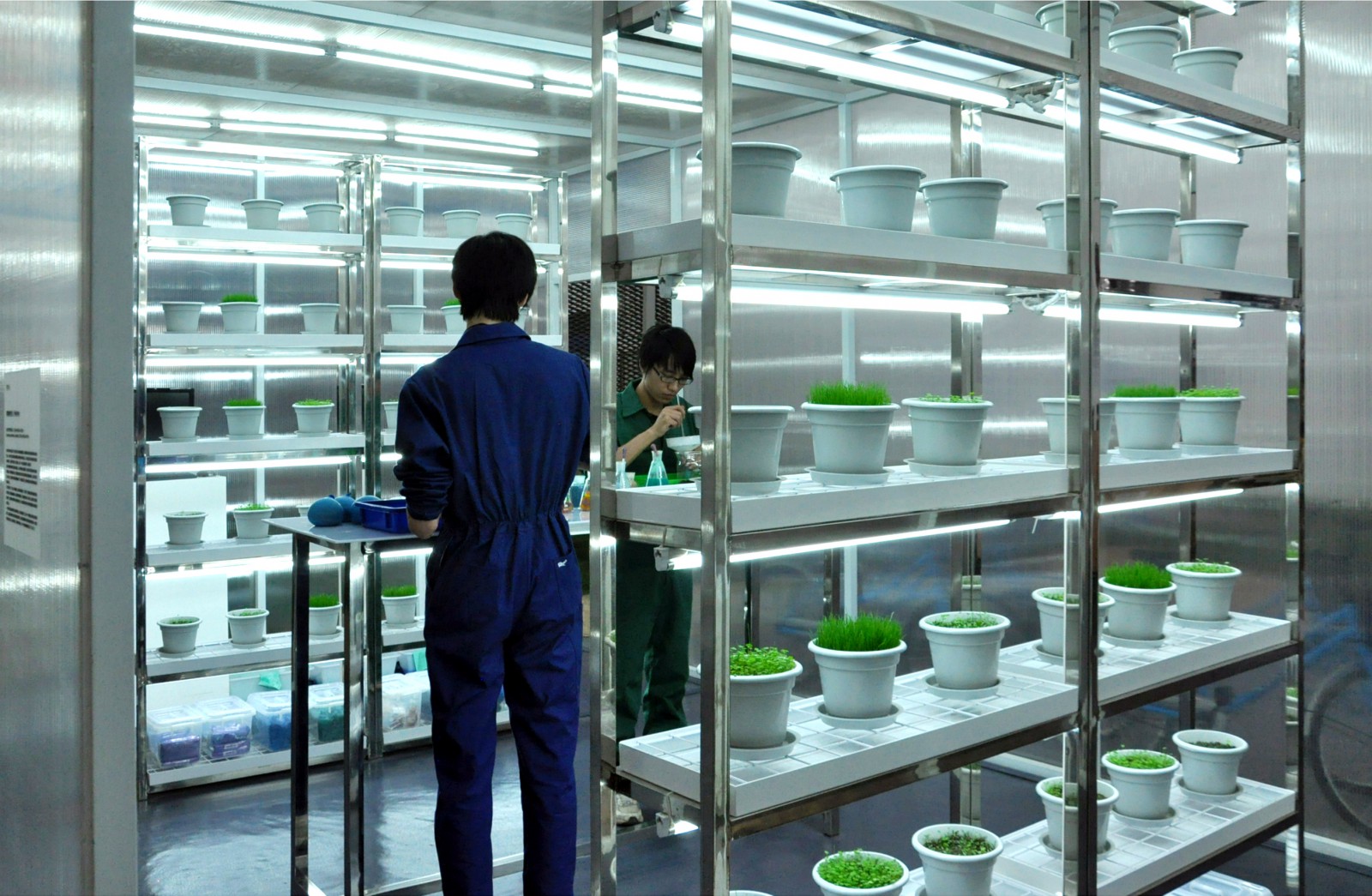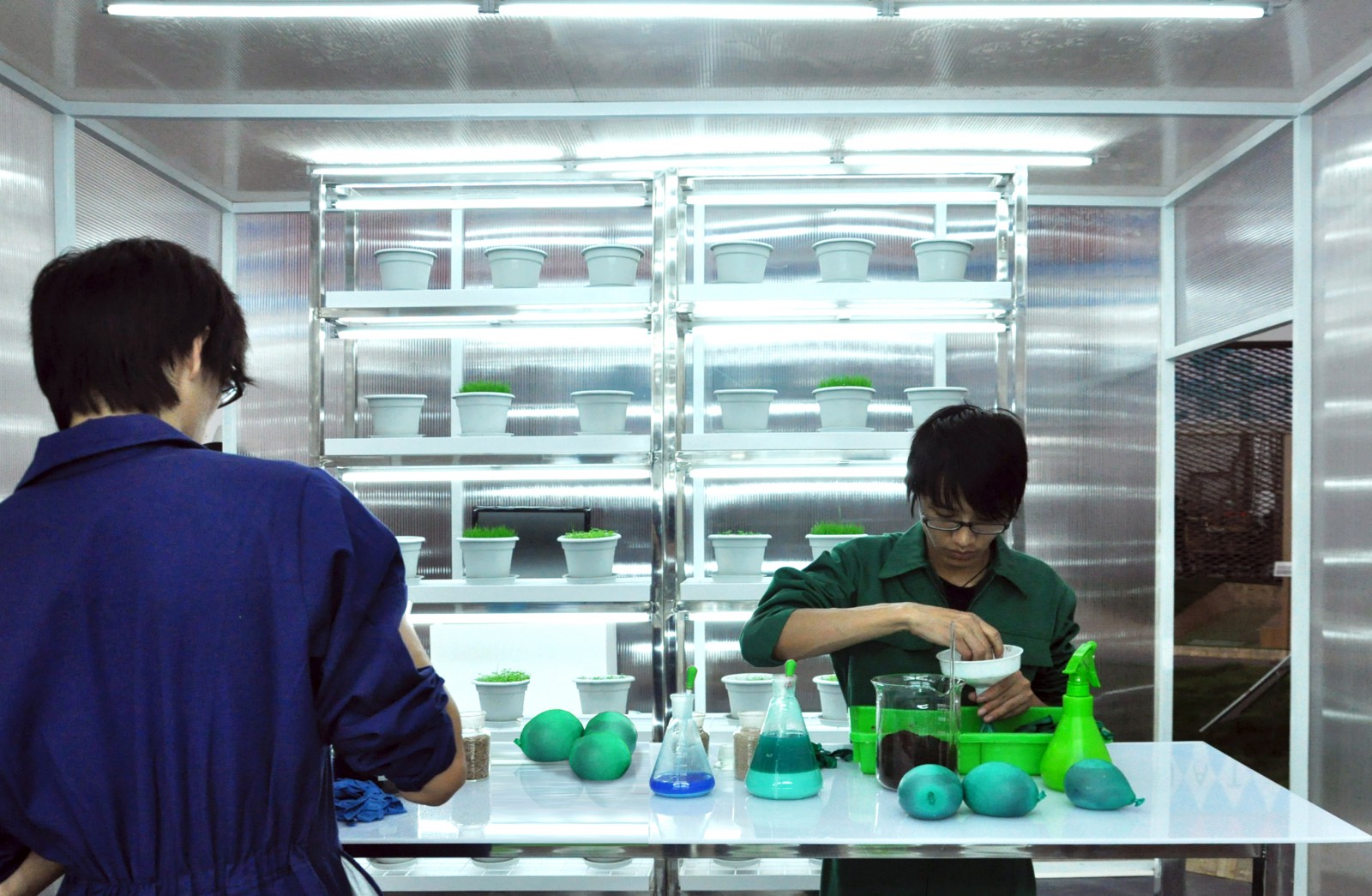Pollination — Installation view
Pollination, Chengdu, China, 2011
Pollination is a participatory ‘rogue’ city park for Chengdu, the capital of Sichuan Province in China, as part of the 2011 Chengdu Biennale.
Chengdu is one of the most important economic, transportation, and communication centers in Western China. The urban area houses over 14 million inhabitants and is rapidly urbanizing. The city is located on the fertile Chengdu Plain, also known as the “Country of Heaven” (天府之国, Tiānfuzhiguó), a phrase also translated as “The Land of Abundance”.
Pollination provokes a discussion around the idea of the fertile ground in the context of Chengdu’s urbanization. What does it mean to transform, rather than starting anew? How to anticipate public green space beyond government planning? Pollination provides an infrastructure for residents to participate in the creation of greenery for the city.
The installation consists of a lab, located at the Biennale ground where seed-bombs are produced, along with bicycles to carry them, and a live website to track their locations. Volunteer lab technicians create seed-bombs—compressed bundles of soil, seeds, fertilizer, and water. Participating residents then take a carton of these bombs on the designated bikes to a preferred spot in the city and throw them. The fertile mixture seeps into the cracks of the city and new plants find roots. The participants geo-tag the location by sending a text message or picture on their cellphone to a website that tracks the new distributed, participatory, and evolving park across the city.
Pollination, 2011


Pollination — Installation view

Pollination — Installation view

Pollination — Installation view